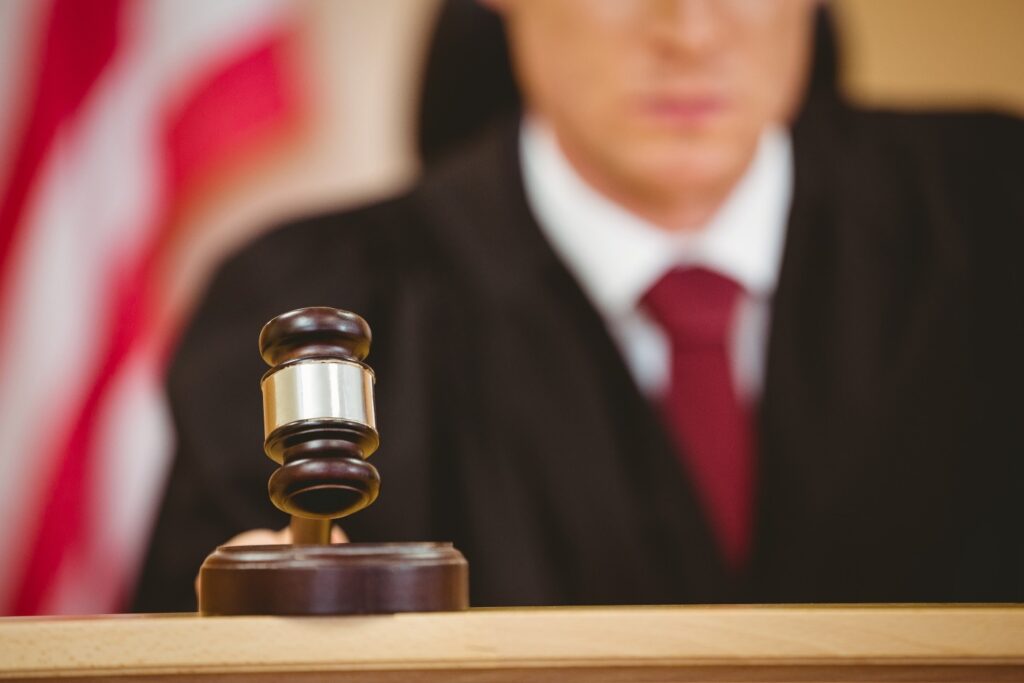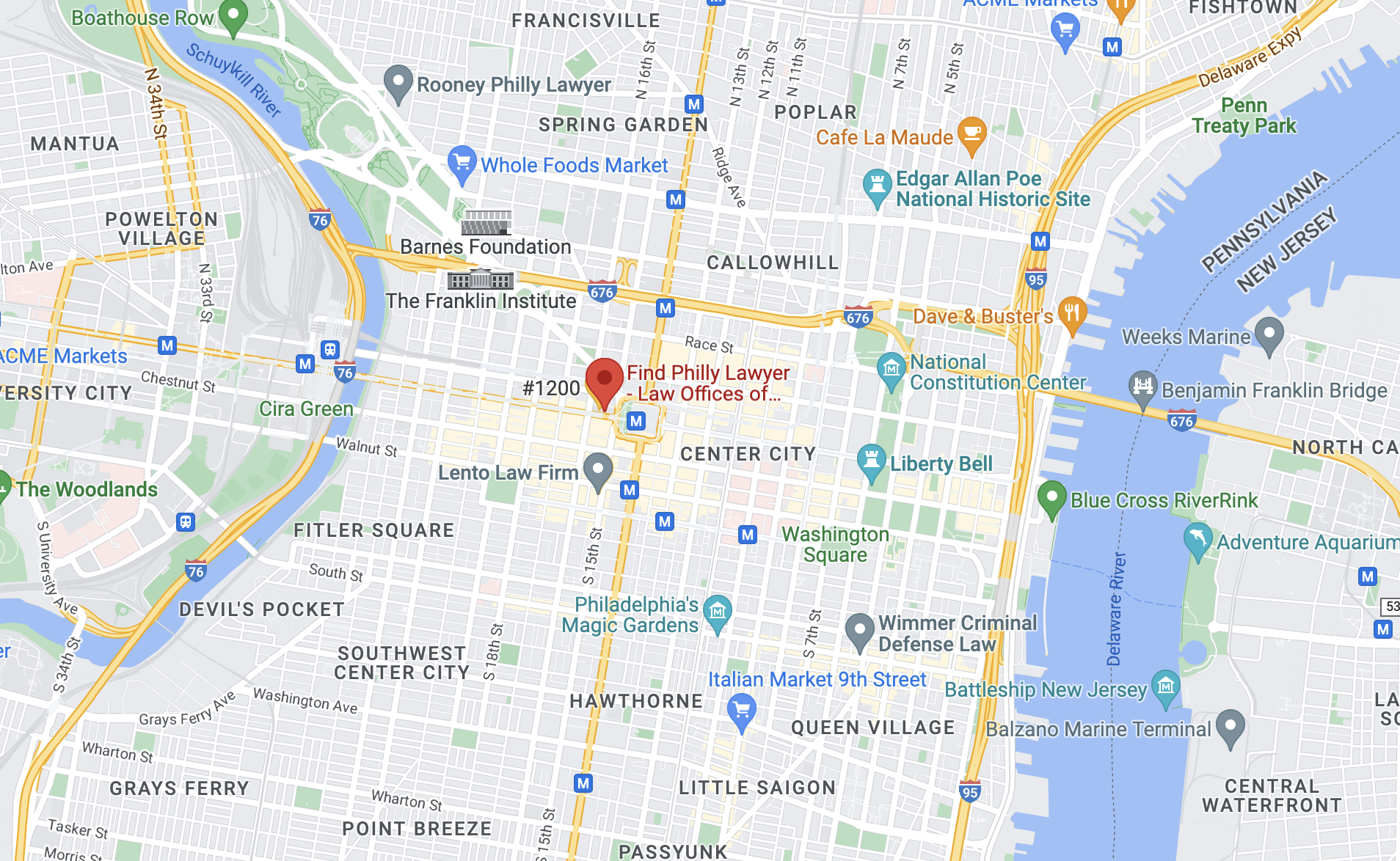We often hear about the insanity defense on TV or in movies more often than in real life. The insanity defense does not apply as often as you might think, but it can be a valid defense for certain defendants.
The insanity defense involves arguing that the defendant is not guilty of a crime because they have a mental illness or condition that prevented them from forming the necessary mens rea to be criminally culpable. Pleading insanity can be a complicated endeavor, as there are multiple ways in which the court might evaluate your claims. Pleading insanity might be a good idea if the defendant has a history of mental illness or psychological disorders that prevent them from understanding the consequences of their actions. After a successful insanity plea, defendants are often placed in psychiatric care facilities, and you should discuss this possibility with your attorney.
For a free review of your case with our Philadelphia criminal defense lawyers, call (215) 826-3314 and speak to the legal professionals at The Liberty Law Team.
What is the Insanity Defense in Philadelphia Criminal Cases?
The movie and television sometimes portray the insanity defense as an underhanded tactic that mentally healthy defendants use to avoid the consequences of their actions, but this is a far cry from reality. In truth, the insanity defense is usual because many defendants are ineligible to claim such a defense.
The foundation of the insanity defense is the effect mental illness or psychological condition or disorders have on a person’s ability to form intent or even understand their actions. To be convicted of a crime, two basic elements must be present: mens rea and actus reus. These are the guilty mind and guilty action, respectively.
A mental illness or disorder might prevent a defendant from forming the necessary mens rea component, meaning they cannot be guilty of a criminal offense because they could not form the intent to commit the crime or possibly even understand that what they were doing was wrong.
How Insanity is Determined in Philadelphia Criminal Courts
The concept of insanity is not easily pinned down. There are numerous possible mental conditions or disorders a person could be diagnosed with, and not all of them interfere with their ability to form the intent to commit a crime. The courts have developed numerous approaches to evaluating insanity claims. Below are four tests and rules that Pennsylvania courts might use to review a defendant’s insanity defense claims.
The M’Naghten Rule
This rule stems from a very old case in which a person named M’Naghten claimed the insanity defense. Under this rule, the court will evaluate whether the defendant’s mental condition prevented them from distinguishing between right and wrong when they allegedly committed the crime. This is important for defendants whose mental conditions are so severe that they might be unable to understand their actions.
The Durham Rule
Not all defendants are permanently under the influence of a mental condition or disorder. Many claim that they experienced some psychological defect or disorder when they committed the crime, but they might not still suffer that condition now.
Under the Durham Rule, the defendant must have had a mental disorder or defect at the time of the crime that prevented them from forming the requisite intent to commit the crime. Often, psychological experts are required to assess the defendant and shed light on the situation.
Irresistible Impulse Test
If the defendant committed the crime because they had the urge to do so that they could not fight, the court might measure their claims against the Irresistible Impulse Test. Urges and impulses are common issues for some people with mental disorders. Under this rule, the defendant must have some mental condition that prevented them from resisting the urge or impulse to commit the alleged offense.
Model Penal Code
In some cases, defendants plead insanity because they did not understand that their actions were wrong at the time of the offense. Under the Model Penal Code test, the court will determine if the defendant had a mental disorder or defect that prevented them from understanding or realizing how their actions did not conform to the law.
When Pleading Insanity Might Be a Good Idea in Philadelphia
The insanity defense is not an easy way out. Courts do not take kindly to defendants who do not have mental or psychiatric disorders but still plead insanity. As such, the defense might be useful only under very limited circumstances. The defense is often a valid option for defendants with a history of psychiatric disorders or mental health problems.
A well-documented history of mental health problems might help us successfully use the insanity defense. A jury is likelier to believe that a defendant cannot be guilty due to insanity if that defendant has records and evidence of serious mental health issues.
If you believe the insanity defense can work for your case, our Bucks County criminal defense attorneys can arrange to have you evaluated by a mental health professional. However, if you do not have any history of psychiatric problems and were of sound mind when the alleged offense occurred, the insanity defense might not be the best option.
What Happens After Pleading Insanity in Philadelphia?
Often, even when a defendant pleads insanity and is found not guilty, they are not always immediately released. In many cases, defendants are further evaluated and might be placed in a mental health facility or institution.
A verdict of not guilty by reason of insanity does not mean the jury or court believed the defendant was innocent. It means that the defendant was incapable of forming the requisite intent or having the state of mind needed to be criminally responsible for their actions.
Defendants found not guilty by reason of insanity are often placed in institutions or facilities for mental health treatment because they are still perceived as dangerous or in need of care. While defendants typically want to avoid a conviction, you should discuss the possibility of being placed in a psychiatric care facility with your lawyer if you decide to pursue an insanity defense.
Contact Our Philadelphia Criminal Defense Lawyers Now
Schedule a free assessment of your case and charges with our Northeast Philadelphia criminal defense lawyers by calling (215) 826-3314 and speaking to the legal team at The Liberty Law Team.





 Liberty Law Team
Liberty Law Team  (215) 826-3314
(215) 826-3314 lonny@libertylawteam.com
lonny@libertylawteam.com





